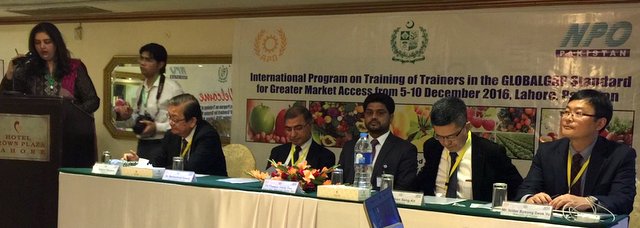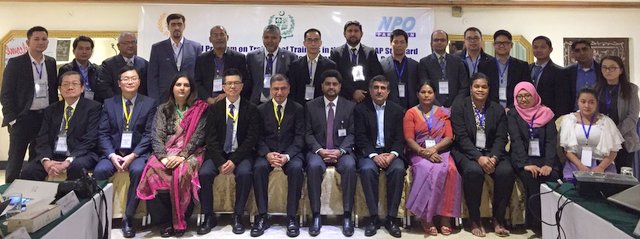
Select Page
The APO commenced a six-day project on Training of Trainers in the GLOBALGAP Standard for Greater Market Access yesterday in Lahore, Pakistan. Conducted in partnership with Pakistan’s National Productivity Organization from 5–10 December, the course will provide 21 participants from 11 member countries with information on Good Agricultural Practices (GAP) standards adopted globally. It also aims to promote safe, responsible agriculture and food production in Asia and the Pacific.

The course was attended by chief guest Dr. Muhammad Shafiq, Head of the Skill Development Centre, University of Punjab, who delivered the inaugural address. Welcoming participants from governments, private-sector organizations, national productivity organizations, NGOs, and research institutes, APO Secretariat Agriculture Department Director Dr. Muhammad Saeed said that while international trade in agricultural and food products was on the rise, consumers were increasingly concerned about the safety and wholesomeness of the products they buy, as well as how they are produced and handled. “New pressures from consumers, retailers, and legislation have placed additional demands on farmers and producers, who are now more often required to apply GAP in farming,” he pointed out.
The project, including interactive lectures, presentations, and individual and group exercises, is led by five international experts: Managing Director Chan Seng Kit, K-Farm Sdn. Bhd. (Malaysia); Agricultural Advisory Committee Member Pathom Taenkam, Thailand Productivity Institute (Thailand); Farm Assurer Manager Isidor Byeong Deok Yu, Isidor Sustainability Research Institute (ROK); Value Chain Development Specialist Waqar Ahmad, US-Pakistan Agriculture Market Development (Pakistan); and Professor and Director Aman Ullah Malik, Institute of Horticultural Sciences, University of Agriculture (Pakistan).
Participants will share their experience in developing and adopting GAP in their countries and national GAP schemes. They will also visit two GAP-certified orchards, as well as fruit-grading, -waxing, and -packaging facilities. As an outcome of the project, participants will prepare action plans and share them with their NPOs. Six months after project completion, progress reports are to be submitted to the APO Secretariat to detail plan implementation.
